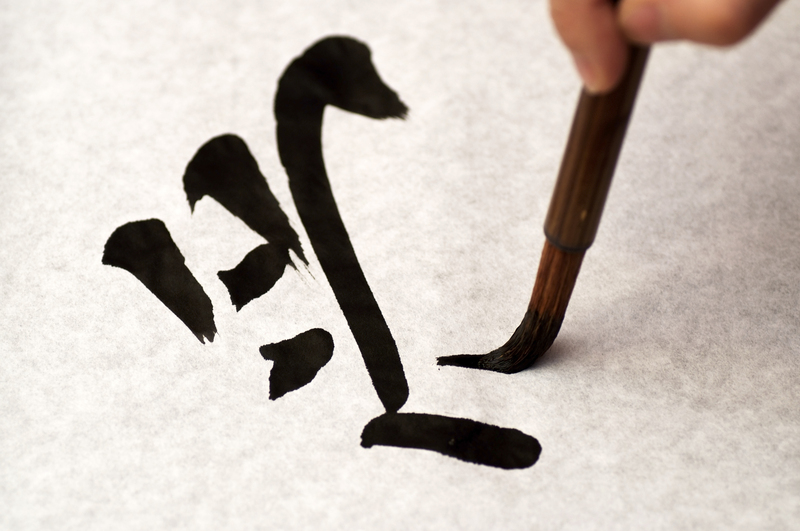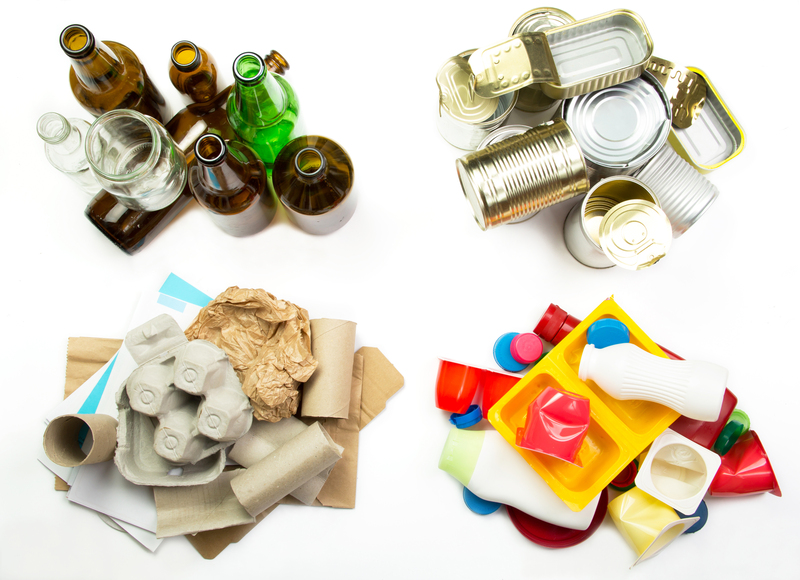Decluttering and Minimalist Living: A Journey to Simplicity
In a world saturated with material possessions and constant distractions, many individuals are seeking respite in simpler, clutter-free lifestyles. Decluttering and minimalist living have become modern movements, each championing the art of living intentionally and freeing oneself from the burden of excess. This comprehensive guide explores the transformative journey toward simplicity, providing actionable tips and insights for cultivating a minimalist home--and, most importantly, a minimalist mindset.
Understanding Minimalism: More Than Just Less Stuff
At its core, minimalist living is not merely about having fewer belongings; it is an intentional approach to life that values quality over quantity, clarity over chaos, and contentment over consumerism. By removing the unnecessary, you create space--both physically and mentally--for what truly matters.
- Minimalism emphasizes purposeful living and careful consideration of every possession.
- Decluttering refers to the process of eliminating material and mental clutter to achieve a more harmonious environment.
- Simplicity is the ultimate goal, enabling greater focus, happiness, and fulfillment.
Minimalism is a journey, not a destination. It adapts to each person's lifestyle, values, and needs.
Types of Minimalism
- Aesthetic Minimalism: Focuses on clean lines, open spaces, and limited decor.
- Functional Minimalism: Involves keeping only what serves a purpose or brings joy.
- Sustainable Minimalism: Prioritizes eco-friendly choices to reduce environmental impact.
- Digital Minimalism: Involves reducing digital clutter such as emails, apps, and social media use.
- Lifestyle Minimalism: Encompasses habits, commitments, and relationships as well as possessions.

Why Choose Decluttering and Minimalist Living?
The journey toward a minimalist lifestyle differs for everyone, but the benefits are universal. Here are some compelling reasons why decluttering and simple living have captivated millions worldwide:
- Less stress: A clutter-free home promotes a calmer mind and a more peaceful lifestyle.
- Improved focus: Removing distractions makes it easier to concentrate on tasks and priorities.
- More time: Fewer possessions mean less cleaning and organizing, giving you more free time.
- Enhanced creativity: Minimalist environments often spark inspiration by reducing visual noise.
- Financial freedom: Buying less allows for saving money or investing in experiences rather than objects.
- Sustainable choices: Living minimally contributes to a reduced ecological footprint.
- Greater joy: Focusing on what truly matters leads to deeper satisfaction and happiness.
How to Start Your Minimalist Journey
Embarking on the path of decluttering and simplified living can feel overwhelming at first. However, by breaking the process into manageable steps, anyone can experience the transformative power of minimalism.
1. Define Your Vision and Motivation
Begin by asking yourself why you want to adopt a minimalist lifestyle. Is it to create a serene space? Reduce stress? Save money? Or perhaps to be more environmentally conscious?
Write down your goals and keep them visible as a reminder throughout your minimalist journey.
2. Start Small, Start Now
You don't need to declutter your entire house overnight. Begin with a single drawer, closet, or room. The momentum and visible results from these small victories encourage continued progress.
- Tackle easy areas first--bathroom drawers, old magazines, or your desktop.
- Set a timer for 10-20 minutes per session to avoid overwhelm.
3. The Four-Box Method
This popular decluttering technique helps you make thoughtful decisions about every item:
- Keep - Items you use regularly or truly love.
- Donate - Items in good condition that can benefit others.
- Recycle - Items that are broken or unusable but recyclable.
- Trash - Items that are genuinely garbage.
Be honest with yourself about what you need and what is simply taking up space.
4. Practice the "One In, One Out" Rule
To maintain an uncluttered home, adopt the habit of removing an item each time a new one enters. This practice prevents accumulation and keeps your space balanced.
5. Mindful Consumption
Minimalist living begins with intentional purchasing. Before buying something new, ask:
- Do I truly need this?
- Will it add value to my life?
- Do I already have something similar?
Choose quality over quantity--a foundation of both decluttering and minimalist living.
Decluttering Strategies for Every Area of Life
Decluttering Your Home
Each room presents unique challenges and opportunities for simplicity:
- Kitchen: Clear countertops, organize pantries, donate unused gadgets, and maintain essentials.
- Bedroom: Limit decor, curate your wardrobe, and ensure only necessary furniture remains.
- Living Room: Opt for functional furniture, keep surfaces tidy, and minimize media accessories.
- Bathroom: Dispose of expired products, simplify routines, and keep only daily necessities visible.
Decluttering Your Digital Life
Digital clutter can be just as overwhelming as physical mess. Consider these steps:
- Unsubscribe from unwanted emails and newsletters.
- Organize digital files and delete duplicates.
- Limit time spent on social media and unfollow unnecessary accounts.
- Keep your desktop clean and apps organized.
Decluttering Your Mind
Mental clutter--stress, overcommitment, and constant information--can undermine your minimalist journey. Practice:
- Meditation or mindfulness exercises daily.
- Journaling to clarify thoughts and release worries.
- Setting clear boundaries with work, relationships, and obligations.
Minimalist Living Tips and Habits
Adopt a Capsule Wardrobe
A capsule wardrobe consists of a limited number of versatile clothing pieces that you love and wear regularly. This approach simplifies dressing, saves time, and reduces decision fatigue. Quality fabrics and timeless designs are key.
Simplify Your Schedule
Minimalist living isn't just about decluttering your space--it's about curating your commitments. Review your calendar and identify activities that don't bring value or joy. Practice saying 'no' and prioritize what truly matters to you.
Embrace Mindful Decor
Less is more when it comes to home decor. Opt for a few meaningful pieces, natural materials, and open spaces to create a sense of tranquility. Plants and natural light also foster a minimalist, fresh atmosphere.
Create Daily Routines
- Start and end each day by tidying your living space.
- Set aside time weekly to reassess and maintain your minimalist home.
- Regularly check in with yourself about your consumption habits.
Overcoming Challenges on Your Simplicity Journey
Transitioning to a clutter-free, minimalist lifestyle can come with obstacles. Sentimental attachments, fear of letting go, and pressure from society or family might arise. Here's how to tackle them:
- Sentimental items: Keep a small box for truly meaningful mementos, or take photos before donating items.
- Fear of scarcity: Remind yourself that having less can actually bring more abundance--of time, joy, and peace.
- Societal expectations: Minimalism is deeply personal. Choose what resonates with you, not what's trendy or expected.
Enlist Support and Celebrate Progress
Share your minimalist journey with friends or family, or join online communities for accountability and encouragement. Celebrate milestones along the way--a decluttered room, a simplified wardrobe, or a fulfilled month without shopping.
Minimalism for Families and Kids
Decluttering and simplicity are achievable, even with children. Teach kids the value of "enough" by involving them in the process:
- Let children choose a fixed number of toys or clothes to keep.
- Donate unused items together to instill gratitude and generosity.
- Model mindful shopping and consumption for your family.
Minimalist habits foster creativity, responsibility, and contentment from an early age.

The Lasting Joy of Minimalist Living
Minimalism is about more than decluttering your closets--it's about enriching your soul. When you free yourself from excess, you gain the freedom to live with intention. You'll notice improved well-being, healthier relationships, and newfound gratitude for the essentials that remain.
Ultimately, the journey to simplicity is an ongoing process of evaluating, refining, and appreciating. It's about making conscious choices every day to live lighter--physically, mentally, and emotionally.
Conclusion: Your Minimalist Journey Begins Now
Decluttering and minimalist living are powerful tools for reclaiming your time, space, and peace of mind. Whether you're just starting out with small changes or transforming your life with sweeping simplicity, every step matters. Remember, minimalism is unique to you--let it reflect your values, dreams, and desires.
Start today. Clear a drawer. Pause before your next purchase. Breathe deeply in your simplified space. The path to simplicity is yours to define--and to enjoy.
Key Takeaways
- Minimalism is a personal journey focused on intentional living and what truly matters most.
- Decluttering is the first step, but maintaining simplicity requires ongoing practice.
- Minimalist living benefits physical spaces, mental clarity, relationships, and sustainability.
- Start small, celebrate progress, and adapt the philosophy to suit your life and family.
Embrace your journey to a simpler, more intentional life. Discover the joy of less--and the abundance it brings.